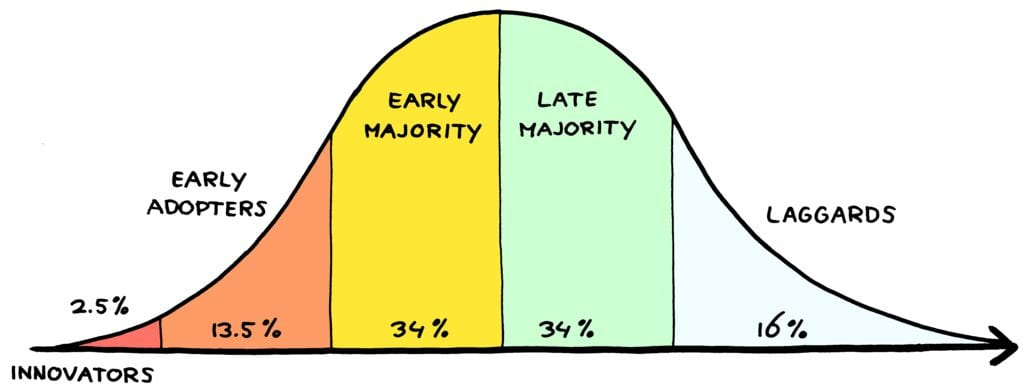The AI Adoption Challenge for HR Leaders
HR leaders everywhere are facing the same question: how do we make our people comfortable, confident and capable with AI?
Yet the path forward often feels anything but clear. A lack of alignment between leadership vision and day-to-day realities, limited time to experiment and ambiguous project briefs are leaving some organizations stuck in the pilot phase.
In fact, IBM’s global CEO survey revealed that 60% of enterprises remain stuck piloting AI, despite leaders’ expectations to have scaled by now. This bottleneck isn’t just about the tech though, it’s about adoption. And as the function shaping workforce AI capability, that makes HR’s role pivotal.
But AI adoption won’t happen by mandate alone, it needs to feel natural and supported. To scale AI, you need to lean on a select few and nurture them into champions, creating a ripple effect that makes using AI effectively less about mandates and more about momentum.
A Simple Way to Kick Start AI Adoption
Every new technology follows a similar journey, known as the adoption curve. It starts with those early adopters who are curious, enthusiastic and eager to test new tools and it’s only once others see the success of this small group that widespread adoption kick in.

Source: Diffusion of Innovations, Everett Roger
For HR leaders, these early adopters are your leverage point. By empowering these champions, they can:
- Show colleagues what’s possible in their day-to-day roles.
- Translate strategy into real, relatable examples.
- Build trust by experimenting in ways that feel safe and practical.
Without them, organizations risk falling into two traps:
- The bottom-up trap: experiments stay siloed, never scaled, enthusiasm fizzles.
- The top-down fantasy: leaders set grand AI goals disconnected from workplace realities, leaving employees disengaged.
Champions bridge these divides!
Why HR Needs AI Champions
Champions are your allies. By giving them structure, recognition and safe spaces to experiment, you:
- Share the load: HR doesn’t have to drive adoption single-handedly.
- Build alignment: champions connect everyday use with business priorities.
- Create clarity: colleagues see real examples instead of abstract goals.
In short, champions turn AI adoption into something people want to do, not just something they’re told to do, amplifying peer-to-peer adoption, not just HR-to-everyone.
How HR Can Scale AI Adoption Through Champions
Here are some AI adoption best practices you can take away right now:
1. Spot and nurture your early adopters
They’re often the ones already testing new tools, sharing prompts or asking curious questions. They may come from anywhere across your organization.
2. Provide guardrails through “traffic lights and roundabouts”
Establish clear guardrails (what’s off-limits) and shared rules of the road (safe-to-fail experimentation). This builds both competence and confidence, the dual requirements for autonomy.
- Traffic lights = clear red/green rules (e.g., never upload sensitive data)
- Roundabouts = shared norms that allow autonomy (e.g., use AI for drafting, but keep human review)
3. Create safe spaces for AI experimentation
Create sandboxes where AI champions can test tools without risking data or compliance breaches.
4. Amplify wins
Share success stories across the business so others can see what’s working.
5. Make champions part of learning journeys
Pair HR training with peer-led sessions so adoption spreads naturally across teams.
Using a structured framework to assess your current AI maturity will help you get started. Check out our AI – Preparing for 2030 whitepaper which also includes a 12-month roadmap and readiness playbook.
The Business Gains of Champion-Led Adoption
By leaning on champions, you unlock benefits that go well beyond HR:
- Higher engagement: people follow trusted colleagues, not just top-down instructions.
- More efficiency: adoption spreads without HR carrying the entire burden.
- Stronger competitiveness: the sooner you move past pilots, the sooner you gain an edge in productivity and talent attraction.
But AI champions are just one part of the AI adoption puzzle. For more practical strategies on moving beyond isolated experiments to enterprise-wide capability, watch our webinar: How HR Leaders Can Catalyze AI Fluency and Adoption at Scale.
Conclusion: HR as the Catalyst, Champions as the Scalers
AI adoption in HR isn’t just about introducing tools, it’s about shifting behaviors across an organization. By empowering early adopters and nurturing them into champions, you create a path where adoption scales through teams, not just from HR.
Your role is to set the stage, provide the guardrails, and shine a light on what works. From there, your champions will help carry the momentum, showing colleagues the way forward, one practical example at a time.
If you’d like to give your champions practical, hands-on skills, our AI for HR training program is designed exactly for this - helping teams to test AI tools safely, build confidence and share their wins across the business.


